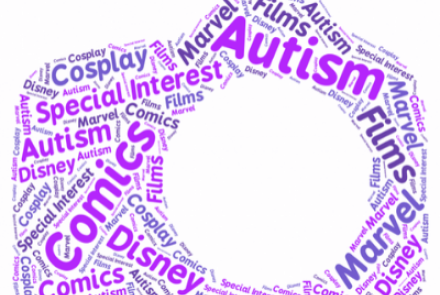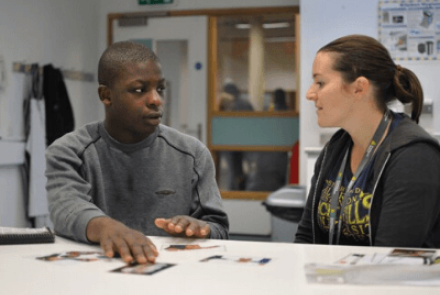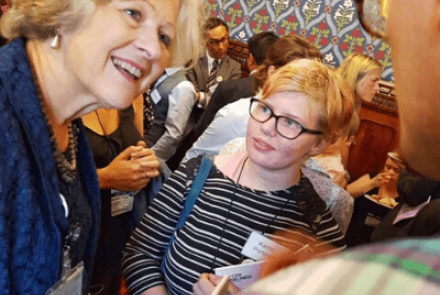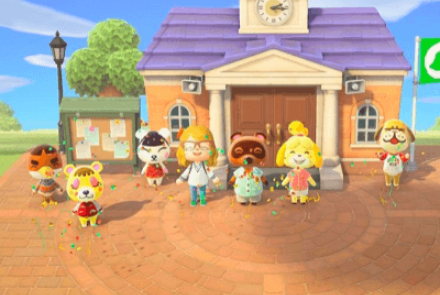10 reasons people with autism struggle with friendships
Social interactions can be baffling for people that are autistic. They may become easily overwhelmed or frustrated when they try to develop and sustain friendships. Making friends can be frightening, confusing and anxiety-provoking for autistic young people. There are various reasons why people with autism may find it challenging to make and maintain friendships.
1. They may not know what to say or how to say it.
Conversation can be a difficult minefield for autistic young people. Initiating conversation (finding things to say) can be challenging. Even though they may like to speak about a particular interest, they may be too worried to do so or may be unsure of whether the other person is engaged in the conversation. When people feel especially anxious, they may get tongue-tied or forget what they want to say altogether. This is very true for some people on the spectrum.
2. They may struggle to understand body language, facial expressions and gestures.
They may not realise that being in a certain proximity means people are trying to be friendly. Also, they may find it difficult to understand why people act friendly towards them, but their body language or gestures to someone else may be different. A lot of people with autism may find it hard to tell a fake friend from a true friend.
3. They may become particularly anxious in certain social situations.
Making friends can cause anxiety because of the high expectations people set and any self-consciousness people with autism may experience. It can be more anxiety-provoking to speak to friends, than to strangers because there is an expectation for the friendship to be in line with other people.
4. Rigidity in the way people with autism can think may make it difficult for them to compromise or cope with changes in routine.
Having a routine provides predictability and comfort; it is a way of reducing anxiety. Therefore, they may struggle if other people change their minds after plans have been arranged or turn up late. This can cause immense frustration. This can also mean they may struggle to see other people’s perceptions of situations.
5. They may not feel confident in their own abilities.
Feeling self-conscious, timid and anxious can make it undoubtedly harder for people with autism to establish friendships. If negative self-talk overrides, people will begin to believe they are not as good as others or incapable of at making friends. It can be difficult if people are unaware of their special interests and what they’re looking for in a friend.
6. They may latch on to previous negative experiences and expect the same thing to happen in every friendship.
The breakdown of some friendships can lead to feelings of worthlessness, isolation and cause upset. It can be extremely difficult for a person with autism to move on from past memories and experiences, meaning that they may associate present or future social relationships with previous, negative situations.
7. Disclosing autism to people can be a hard thing to decide.
There are many advantages and disadvantages of disclosing autism to people, including those you want to be friends with. Some people just hear the word ‘autism’ and associate this with a disabling condition. They may not look beyond the ‘label’ and explore the many strengths of the person with autism. This can make it hard for people to make friends as they may not be open-minded or understanding. On the other hand, if two people get on very well, they may have an in-depth understanding of the condition and this would give people a chance to reveal their true colours. It is incredibly frustrating and upsetting if a friendship breaks down because the autism is disclosed, but this can often mean the other person isn’t worth your time and effort.
8. They may appear to be too over-friendly.
People with autism may get easily attached to people, leading them to become over-friendly. It can be difficult to understand other people’s perceptions of situations, therefore what they feel is appropriate, may be considered as socially unacceptable. This misunderstanding can lead to a difficulty in establishing friendships.
9. They may struggle to understand their own emotions, for example anxiety relating to friendships or jealousy.
They may be very sensitive to other people’s thoughts. They may also find it hard to understand the stages of friendships, which can lead to confused emotions. They may struggle to cope with anxiety that could be linked to them not knowing what to say in conversations. Anxiety can lead to the avoidance of social situations. This can mean the individual with autism becomes socially isolated, meaning they have limited opportunities to make new friends.
10. There is a constant expectation to maintain the friendship.
Keeping in contact with friends can be difficult because people on the autism spectrum may not know how often to contact their friend, and may become upset and disappointed if their friend doesn’t reply for whatever reason. This may cause overwhelming anxiety and frustration. They may also worry if their friend doesn’t message them very often because they may think they are purposely distancing themselves.
Related links
- Making friends as an autistic young person
- Read more about understanding autism.
- Understand how to include autism everywhere.
- Have a look at our top tips for how to communicate with an autistic young person.
- Our Youth Council members tell us about what it's like to be autistic in their own words.












